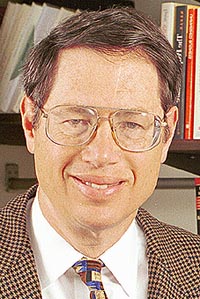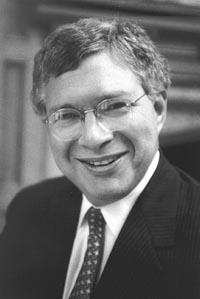BSD, Law School plan health-care conference
Peter SchulerNews Office
 Richard Epstein |
The conference, titled “The Regulation of Managed Care Organizations and Its Impact on the Physician-Patient Relationship”, will be held Dec. 8 and 9, at the Law School. Experts in law, medicine, economics, and public policy will examine the subject from many perspectives.
Mark Siegler, the Lindy Bergman Distinguished Service Professor in Medicine and Director of the MacLean Center for Clinical Medical Ethics, and Richard Epstein, the James Parker Hall Distinguished Service Professor in the Law School, are the conference organizers. Siegler emphasized the importance of the conference, noting “One of the major failings of the managed-care revolution is its inability to work effectively with patients and doctors, making it very difficult to build the kind of long-term relationships that were common in an earlier era. We need to keep alive the kind of medicine that many patients want for themselves and their families, the kind of medicine that most physicians want to practice, and the kind of medicine that American society needs in the next century.”
 Mark Siegler |
“We live in a time of great transition on the delivery of medical services. We have to investigate once again the interaction between regulation and choice, between contract and tort, in this most contentious area,” said Epstein. “This conference will bring together experts to talk about some of the most pressing problems that face the health-care industry–the protection of privacy, the control of fraud and abuse, and the proliferation of private lawsuits.”
Chicago faculty members who will participate as speakers are Epstein; Daniel Fischel, Dean of the Law School and the Lee and Brena Freeman Professor in the Law School; David Meltzer, Assistant Professor in Medicine; Glenn Steele, Dean of the Biological Sciences Division and the Pritzker School of Medicine; Cass Sunstein, the Karl L. Llewellyn Distinguished Service Professor in the Law School; and Alan Sykes, the Frank and Bernice J. Greenberg Professor in the Law School.
More information about this conference is available at its Web site at: http://www.law.uchicago.edu/healthconference/.
![[Chronicle]](/images/small-header.gif)